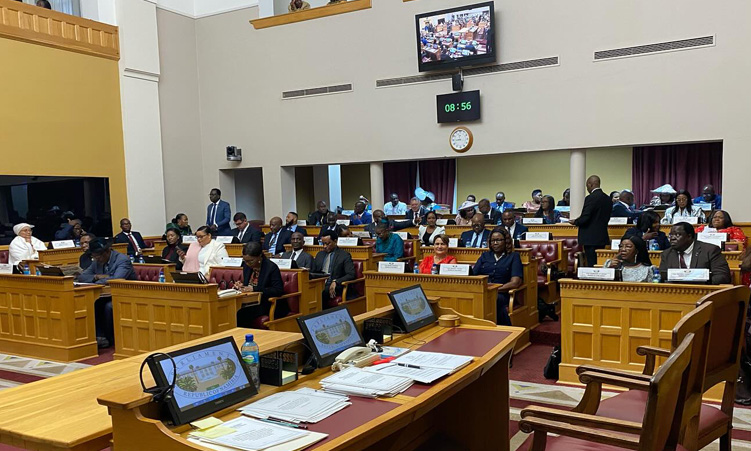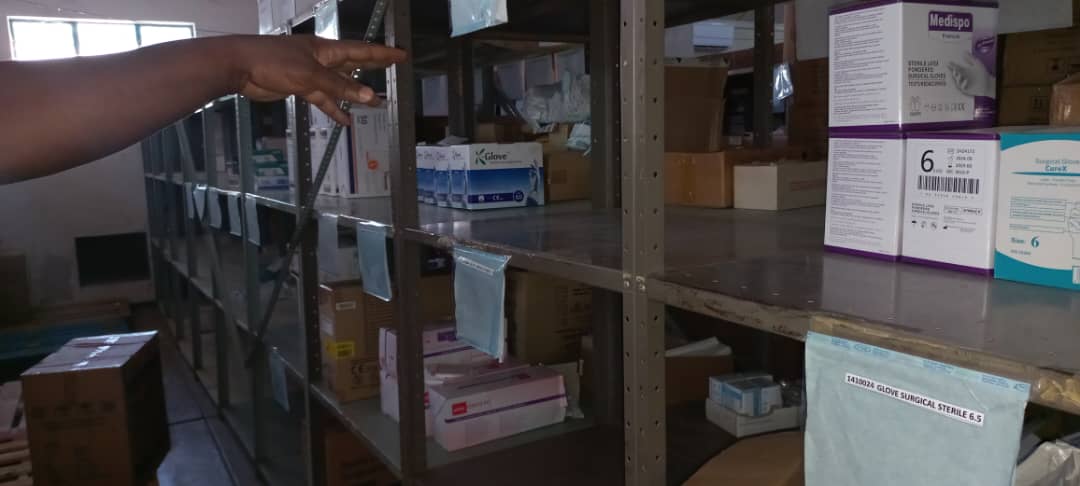IT is so good to know that 2008 has been declared by the UN as the “International Year of the Potato(e)”; this should ensure that when I eat my GRN-recommended piece of greasy, battered hake, my portion of “slap chips”, drowned in salt and vinegar (my choice), will continue to shrink.
Is this a double-edged international plot to get me to eat “healthy” – yuk! After all the price of the good old spud has at least doubled over the past couple of years; a UN marketing campaign might get more spuds in the ground and ultimately in the belly but I fear the “Law of Unintended Consequences”. Unfortunately my other vice, the instant coffee in the yellow tin produced by a large Swiss company (under licence) is also under threat with the recent 20% price hike (stop press – make that 27%) and this makes me wonder as the producer price of the humble coffee bean seems only marginally changed.But also there are major price hikes of bread, milk and just about everything else we eat; even worse I cannot buy that nice Namibian Gouda cheese anymore – only that plastic-tasting foreign rubbish.Plus, I am told that mealie meal has also shot up disproportionately.Fuel escalates daily and even steel and cement have been hiked.What is going on? Well for once we can’t blame poor old GRN apart from my favourite Minister (and Insight’s) doing her usual regrettable trick of increasing the price of my cigarettes and booze every year – but I am resigned to that.The good things in life …and she makes about N$8 for each letter I write! More interesting is that a look at the Economist (UK) food price indices shows that the food prices there have gone up by 60% over past year – most of it since October 2007.The problem seems more general.So, again, what is going on? Grain prices have been hit as the US has decided that corn (mealies to us) should be used for bio-fuel manufacture and be subsidised (elections coming up?) – thus displacing food producing land to fuel production; the knock-on effect has increased the price of all grains so bread gets expensive.Also some bad harvests are foreseen.This change is explainable.But coffee and the rest? It grieves me to say this as the European Union is not my favourite organisation, but they are pretty hot on corporate collusion between the huge oligarchs that dominate most industries.In this case they recently nailed the four major consumer household chemical producers for fixing the prices of toothpaste and washing-up liquid (and more).The fines were pretty pathetic when compared to the additional profits made but at least the EU have the muscle and determination to do it.Our institutions do not.Thus we are increasingly at the mercy of these corporate giants – but the EU action does confirm that price fixing is a reality not a myth.Some European airlines are also under a cloud for the same reasons.Steel and cement may well be similar; gone are the days when prices were locally competitive and based on local production costs.Now, for instance, steel is priced globally by each of the (few) major corporate producers.Do they price fix? I leave that to the judgement of others! And sure, China is using more.But why has this happened so rapidly? It seems to me that the US banking crisis emerged somewhere just after the middle of 2007.This was caused by the financial geeks, in their constant quest to make more money (read, to extend more consumer credit) decided that lending money for houses to those who could not repay could give a massive boost, in the short term, to their multi-million incomes.The geeks then bet that these poor risks would be able to pay and as house prices were rising rapidly took advantage of the excess collateral (house price minus loan outstanding) and used this “cash” as security to lend more – securitisation.This “collateral buffer” had, until this started, provided banks and similar with additional financial safety, was then gobbled up.All would have been fine had US house prices kept rising and everyone paid off their loans.This was not to be – the high risk lot, the sub-crime borrowers, started defaulting after the contractual interest rate increased after a couple of years.Whoops – US house prices began to slide, the value of the “buffer collateral” evaporated and the bank system froze up as they were all scared to lend each other money.Banks customers began to line up to withdraw their cash; governments and central banks had to start bailing them out, and this process still has a long way to run.First world financial institutions are now in a fine old mess and governments are running out of bail money.Banking, of course, now physical stocks of gold and silver no longer underpin currencies (thank goodness), are institutions that rely on trust that the customer can always get their money out; this trust has, to some extent been badly betrayed – despite the inevitable confidence building rhetoric from authority.And major governments are getting short of cash – how short, time will reveal.So what has this to do with the price of coffee? Simple, the corporate oligarchs, who themselves are dependent upon banks and their credit / money creation for growth, are themselves threatened as is their tryst with governments.They are going to have to help out and get some money from somewhere to pour back into the coffers to support the banks and government recovery needs.Where to get it? Well, as usual the poor consumer of the world, the “lender” of last resort.Hence, I speculate, the massive price hikes of late.We know price fixing is a reality, we know the global influence of a small number of major corporations and financial institutions and we have a pretty good idea that there is a massive problem; plus the timing.Conspiracy or reality? Fortunately Namibia, despite importing almost all its consumables, has not yet fully linked its economy to the WTO/EU, EPA road to heaven, especially the “new generation trade” of financial and high-tech geeky services and our fiscal policies are prudent; we have only taken 15 pieces of silver so far.Namibia’s banking and financial sectors, while probably having some exposure to the external mayhem (even Namibia has some geeks), still retain adequate conservative policies to insulate us from the worst of that to come – I hope.But interest rates are bound to scream up and this should attract the attention of the policy makers and the legislators even if food prices don’t! Globalisation is great.So if you want to “Smell the Coffee” – be quick; soon you won’t be able to afford it!Unfortunately my other vice, the instant coffee in the yellow tin produced by a large Swiss company (under licence) is also under threat with the recent 20% price hike (stop press – make that 27%) and this makes me wonder as the producer price of the humble coffee bean seems only marginally changed.But also there are major price hikes of bread, milk and just about everything else we eat; even worse I cannot buy that nice Namibian Gouda cheese anymore – only that plastic-tasting foreign rubbish.Plus, I am told that mealie meal has also shot up disproportionately.Fuel escalates daily and even steel and cement have been hiked.What is going on? Well for once we can’t blame poor old GRN apart from my favourite Minister (and Insight’s) doing her usual regrettable trick of increasing the price of my cigarettes and booze every year – but I am resigned to that.The good things in life …and she makes about N$8 for each letter I write! More interesting is that a look at the Economist (UK) food price indices shows that the food prices there have gone up by 60% over past year – most of it since October 2007.The problem seems more general.So, again, what is going on? Grain prices have been hit as the US has decided that corn (mealies to us) should be used for bio-fuel manufacture and be subsidised (elections coming up?) – thus displacing food producing land to fuel production; the knock-on effect has increased the price of all grains so bread gets expensive.Also some bad harvests are foreseen.This change is explainable.But coffee and the rest? It grieves me to say this as the European Union is not my favourite organisation, but they are pretty hot on corporate collusion between the huge oligarchs that dominate most industries.In this case they recently nailed the four major consumer household chemical producers for fixing the prices of toothpaste and washing-up liquid (and more).The fines were pretty pathetic when compared to the additional profits made but at least the EU have the muscle and determination to do it.Our institutions do not.Thus we are increasingly at the mercy of these corporate giants – but the EU action does confirm that price fixing is a reality not a myth.Some European airlines are also under a cloud for the same reasons.Steel and cement may well be similar; gone are the days when prices were locally competitive and based on local production costs.Now, for instance, steel is priced globally by each of the (few) major corporate producers.Do they price fix? I leave that to the judgement of others! And sure, China is using more.But why has this happened so rapidly? It seems to me that the US banking crisis emerged somewhere just after the middle of 2007.This was caused by the financial geeks, in their constant quest to make more money (read, to extend more consumer credit) decided that lending money for houses to those who could not repay could give a massive boost, in the short term, to their multi-million incomes.The geeks then bet that these poor risks would be able to pay and as house prices were rising rapidly took advantage of the excess collateral (house price minus loan outstanding) and used this “cash” as security to lend more – securitisation.This “collateral buffer” had, until this started, provided banks and similar with additional financial safety, was then gobbled up.All would have been fine had US house prices kept rising and everyone paid off their loans.This was not to be – the high risk lot, the sub-crime borrowers, started defaulting after the contractual interest rate increased after a couple of years.Whoops – US house prices began to slide, the value of the “buffer collateral” evaporated and the bank system froze up as they were all scared to lend each other money.Banks customers began to line up to withdraw their cash; governments and central banks had to start bailing them out, and this process still has a long way to run.First world financial institutions are now in a fine old mess and governments are running out of bail money.Banking, of course, now physical stocks of gold and silver no longer underpin currencies (thank goodness), are institutions that rely on trust that the customer can always get their money out; this trust has, to some extent been badly betrayed – despite the inevitable confidence building rhetoric from authority.And major governments are getting short of cash – how short, time will reveal.So what has this to do with the price of coffee? Simple, the corporate oligarchs, who themselves are dependent upon banks and their credit / money creation for growth, are themselves threatened as is their tryst with governments.They are going to have to help out and get some money from somewhere to pour back into the coffers to support the banks and government recovery needs.Where to get it? Well, as usual the poor consumer of the world, the “lender” of last resort.Hence, I speculate, the massive price hikes of late.We know price fixing is a reality, we know the global influence of a small number of major corporations and financial institutions and we have a pretty good idea that there is a massive problem; plus the timing.Conspiracy or reality? Fortunately Namibia, despite importing almost all its consumables, has not yet fully linked its economy to the WTO/EU, EPA road to heaven, especially the “new generation trade” of financial and high-tech geeky services and our fiscal policies are prudent; we have only taken 15 pieces of silver so far.Namibia’s banking and financial sectors, while probably having some exposure to the external mayhem (even Namibia has some geeks), still retain adequate conservative policies to insulate us from the worst of that to come – I hope.But interest rates are bound to scream up and this should attract the attention of the policy makers and the legislators even if food prices don’t! Globalisation is great.So if you want to “Smell the Coffee” – be quick; soon you won’t be able to afford it!
Stay informed with The Namibian – your source for credible journalism. Get in-depth reporting and opinions for
only N$85 a month. Invest in journalism, invest in democracy –
Subscribe Now!










